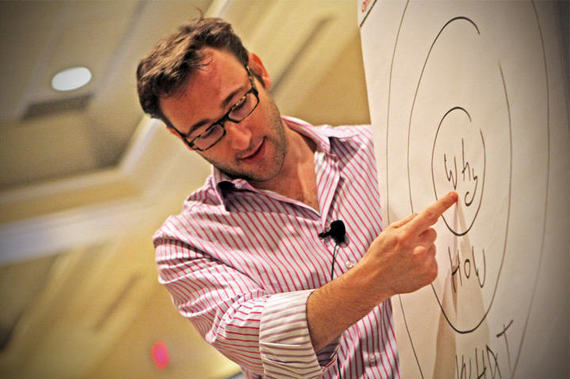I've had the fortune of meeting, spending time with, getting to know and becoming close friends with some of the world's most "elite athletes" (individuals who are the best in their respective disciplines: behavioral psychologists, chess players, professors, public speakers, authors, philanthropists, business people).
This is a series sharing the top leadership lessons they've INSPIRED which in turn led to ADOPTION, changes for the better, both at work and at home.
Who is Simon Sinek?
Simon Sinek, a self-described optimist, started the WHY movement. His TED Talk, done without a single PowerPoint slide, now has over 13 million views and is the second most watched TED Talk of all time. His first book, Start with Why, has been a best-seller and his second book, Leaders Eat Last: Why Some Teams Pull Together and Others Don't, will be out New Years Eve.
LESSON: 9 Insights of Being a Selfless Leader (the inspiration)
Identifying the problem is 50 percent of the solution. Building a deep understanding of how things fail, helps us learn and grow from our mistakes. Simon and I spent some time brainstorming what makes a leader selfish vs. selfless. Here are the top nine we came up with.
SELFISH LEADERS:
1. We respect selfish leaders
2. We are dependent on them and become more dependent over time
3. Constant protection of IP
4. Scarcity mentality
5. Status produces serotonin: feels strong
6. Selfish leader is relied upon, but we are unsure what they're going to do
7. Fragile relationships: when the leader leaves, teams and people die
8. Negative fear because they're unpredictable, we are afraid of them hurting us
9. Measureable ROI in short-term, there is no long-term measurement b/c there is no long-term to ensure others continue to rely on you
SELFLESS LEADERS:
1. We love selfless leaders
2. We are dependent on them to start, however become independent over time
3. Constant improvement of IP
4. Abundance mentality
5. Helping others
6. Selfless leader is trusted, we know they have our best interests in mind
7. Resilient relationships: they are helping others achieve confidence and independence
8. Positive fear, we are scared of disappointing them, afraid of hurting them
9. Huge ROI long-term
ADOPTION TOOLS (leveraging insights of being a selfless leader)
Two areas to apply these insights include:
1) Finding a job -- the common notion goes: "We join companies but leave managers." So instead of interviewing and evaluating the company, evaluate the manager who will be your leader. Are they selfish or selfless. A short blog post: "Don't Shop for a Job. Shop for a Manager."
2) Finding a mentor -- every successful person I've met has found great mentors to help guide their personal growth. However a bad mentor can be as lethal as a bad golf coach, permanently ruining your swing. Find mentors that are selfless and in constant improvement of their knowledge (IP). I was humbled to be ranked the top mentor by startup entrepreneurs in the Founders Institute, here is a short Q&A on Mentorship.
What are some other characteristics that differentiate a selfish vs. selfless leaders/mentors/coaches/managers?
Charlie Kim is Founder & CEO of Next Jump, a technology company headquartered in New York City. What sets Next Jump apart is their culture and focus on human capital, defined by: Better Me + Better You = Better Us. Follow Charlie on Twitter @CharlieYKim
